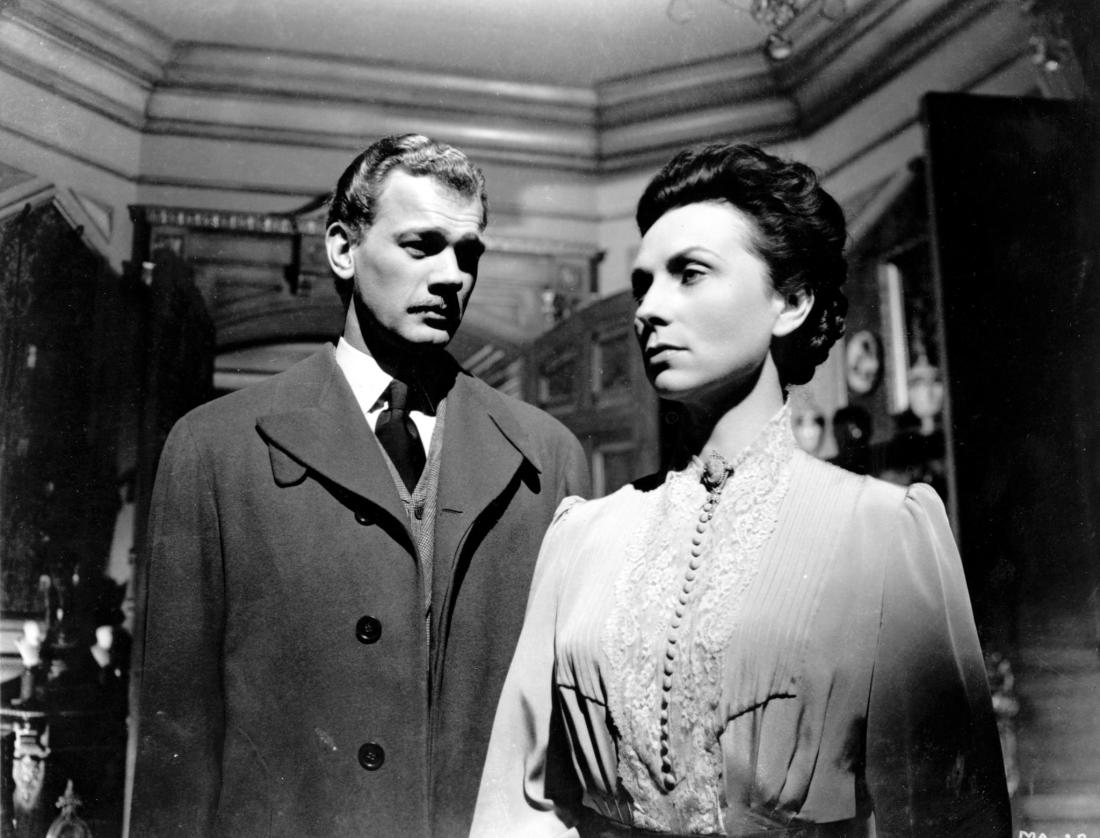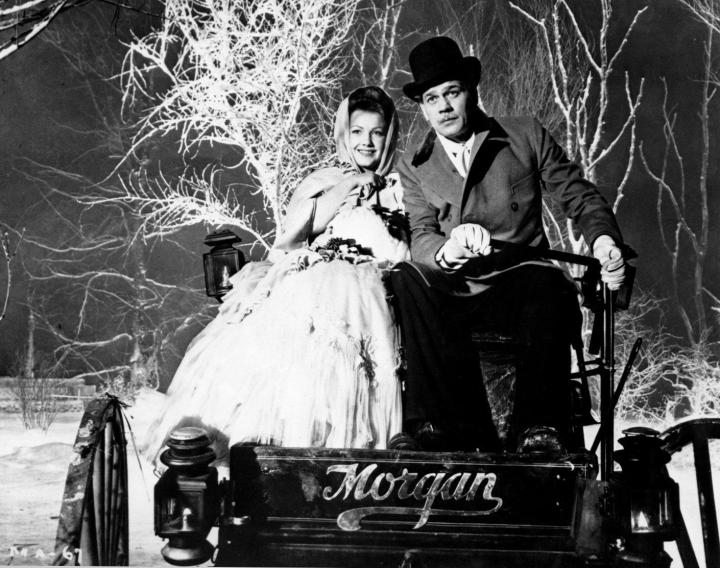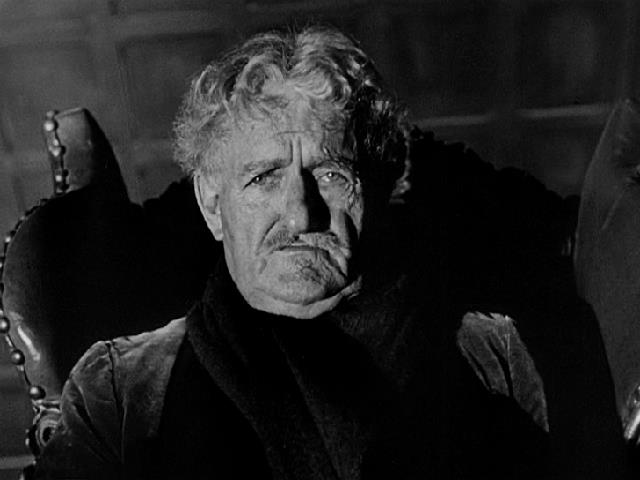Even had it been released as Orson Welles intended, it seems unlikely that The Magnificent Ambersons — however magnificent it may have been — would have been a popular film. It’s too downbeat and would have been more so with Welles’ original ending. In fact, it’s hard not to sympathize — at least a little — with RKO’s desire to change that ending. For that matter, you have to give the pitch-hitter directors Robert Wise and Fred Fleck some credit for shooting an ending that visually doesn’t disgrace what Welles had done. The biggest problem with the happier ending — apart from the fact that it’s clumsily written and subverts Welles’ intentions — is that it can’t help but feel like a Band-aid slapped over a much deeper problem, and mostly because it’s so abrupt. That anyone thought it would help much with the film’s marketability is amazing. It isn’t really a happy ending, merely a bittersweet hopeful one (apparently more like the book) — and it does nothing to dispell the overall tone of the film as a study in the disintegration of a once great family.
I’ve never read Booth Tarkington’s novel (does anyone still read Tarkington?), but Welles’ film is a pretty somber affair about the passing of an era. It’s the not uncritical nostalgia for an age the 26-year-old Welles could only have dimly remembered — the novel came out when Welles was three. It feels like the work of a much older man, which raises the question of whether Welles was ever really young. One of its most memorable thoughts is the pronouncement of how what looks important — even devastating — when one is 20 looks like no big deal when one is 40. It’s an idea put forth with the idea that 40 can neven explain this to 20, that it can only be learned by becoming 40. Yet it’s being put forth by a man in his 20s. Often the message is mixed, too, since Welles both hates the modernity that is helping to kill off the age of the Ambersons, yet, like his film’s “hero,” he’s very much a part of it — and wholly conscious of the fact.
Ambersons uses much of the same cinematic language as Citizen Kane — and has a similar playful tone in the early scenes — but there are also long, often mobile, dialogue scenes that must have made the cutting of the film from 148 (Welles’ cut) or 131 (the preview version) minutes to the final 88 minute version a nightmare. Welles had crafted a film where scenes couldn’t be trimmed. They had to be cut entirely. The upside to this is that what we do see is pretty much what Welles intended. The problem is that there’s so much we don’t see at all. What’s amazing is that the 88 minute cut works as well as it does. For that matter, it’s amazing that it’s even coherent.
The Hendersonville Film Society will show The Magnificent Ambersons Sunday, Feb. 1, at 2 p.m. in the Smoky Mountain Theater at Lake Pointe Landing Retirement Community (behind Epic Cinemas), 333 Thompson St., Hendersonville.







Before you comment
The comments section is here to provide a platform for civil dialogue on the issues we face together as a local community. Xpress is committed to offering this platform for all voices, but when the tone of the discussion gets nasty or strays off topic, we believe many people choose not to participate. Xpress editors are determined to moderate comments to ensure a constructive interchange is maintained. All comments judged not to be in keeping with the spirit of civil discourse will be removed and repeat violators will be banned. See here for our terms of service. Thank you for being part of this effort to promote respectful discussion.